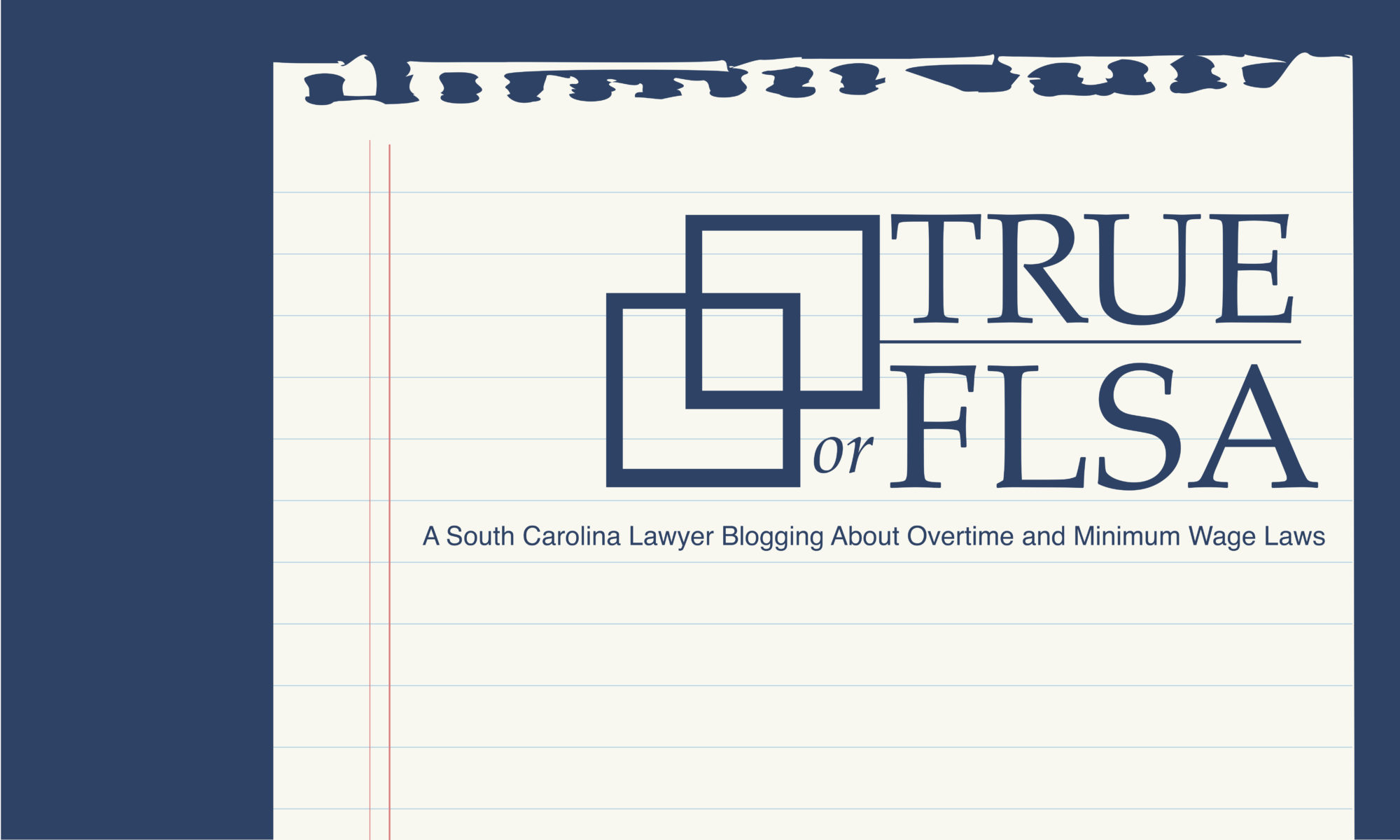Types of Wage Theft in South Carolina: Unpaid Wages and Unpaid Overtime
Wage theft is the term used when employers and businesses fail to pay South Carolina employees all the wages that the employee earned. (At least, it’s the term used by me and other employee advocates; employers call it an “oopsie!”) Wage theft occurs both in traditional wages (weekly paycheck, commissions, accrued PTO) and in overtime and minimum wage cases under the Fair Labor Standards Act (FLSA). (I’ll refer to the FLSA claims as “overtime wage theft” for inflammatory purposes.)
If an employee should be getting paid overtime for the extra hours he or she is working, and the employer refuses to pay overtime, then the employer is engaging in overtime wage theft, which is illegal in South Carolina. (Also currently illegal in South Carolina? Playing pinball before you’ve reached the age of 18. But I’m a sweet-natured felon, don’t worry. )
Most of the wage theft cases I see in my practice come under either the South Carolina Payment of Wages Act or under the FLSA, which are the two laws covering wages or pay in South Carolina. I’ve blogged about wage theft under the South Carolina law before, so I’d like to focus this article on overtime wage theft under the FLSA.
Overtime Wage Theft Comes from Misclassification by the Employer
Most FLSA overtime wage theft claims come when an employer deliberately or negligently misclassifies an employee as exempt from overtime pay. In other words, the employer tells the employee, “You don’t get overtime pay [time and a half], no matter how many hours you work.” And that’s completely fine, if the employee is getting paid a genuine salary of at least $455 a month AND has the duties that meet the FLSA’s requirements to be exempt form overtime pay.
However, the problem arises when the employee clearly isn’t getting paid a salary OR clearly doesn’t work the managerial or administrative duties that would exempt him from the FLSA’s requirements, and yet the employer doesn’t pay overtime at all. In this case, if the employee is working more than 40 hours a week, the employer is getting the benefit of free or discounted labor by not having to pay the overtime premium. That’s where the overtime wage theft comes in (or “wage oopsies!” for all you defense attorneys).
Sometimes, this is a genuine oversight by the company. Perhaps it’s a small business with an owner that doesn’t understand the law, or it’s a close question as to whether the employee is entitled to overtime or not. Those cases do happen, but the law still requires a business owner to make sure that the employees are being paid properly. Often that means hiring a lawyer to vet wage practices and make sure the company is in compliance.
Because, the bottom line is, if the company has misclassified an employee, even if it wasn’t malicious, the company still has to pay to make it right.
Exempt vs. Non-Exempt & Employees vs. Independent Contractors
However, the more egregious examples of overtime wage theft include companies who deliberately misclassify employees as exempt from overtime just so that the companies can save money.
A common variation of this misclassification practice comes when the employer decides to classify employees as “independent contractors” instead of employees. The reason they do this is because independent contractors aren’t entitled to overtime pay or minimum wage under the FLSA, and the company doesn’t have to provide other benefits either. An employer who takes this step without the facts to support this decision risks a great deal of trouble and money later on.
Let Me Explain–No, There is Too Much. Let Me Sum Up.
 The determination of whether an employee has been misclassified is extremely fact specific. If you believe you’ve been a victim of overtime wage theft, you should speak with an employment attorney immediately.
The determination of whether an employee has been misclassified is extremely fact specific. If you believe you’ve been a victim of overtime wage theft, you should speak with an employment attorney immediately.
And if you believe you’ve engaged in youthful illegal pinballing, you should speak with a criminal defense attorney, because the State will (and should!) vehemently protect the innocent people of this State from wanton, profligate, and underage arcade gamers.
